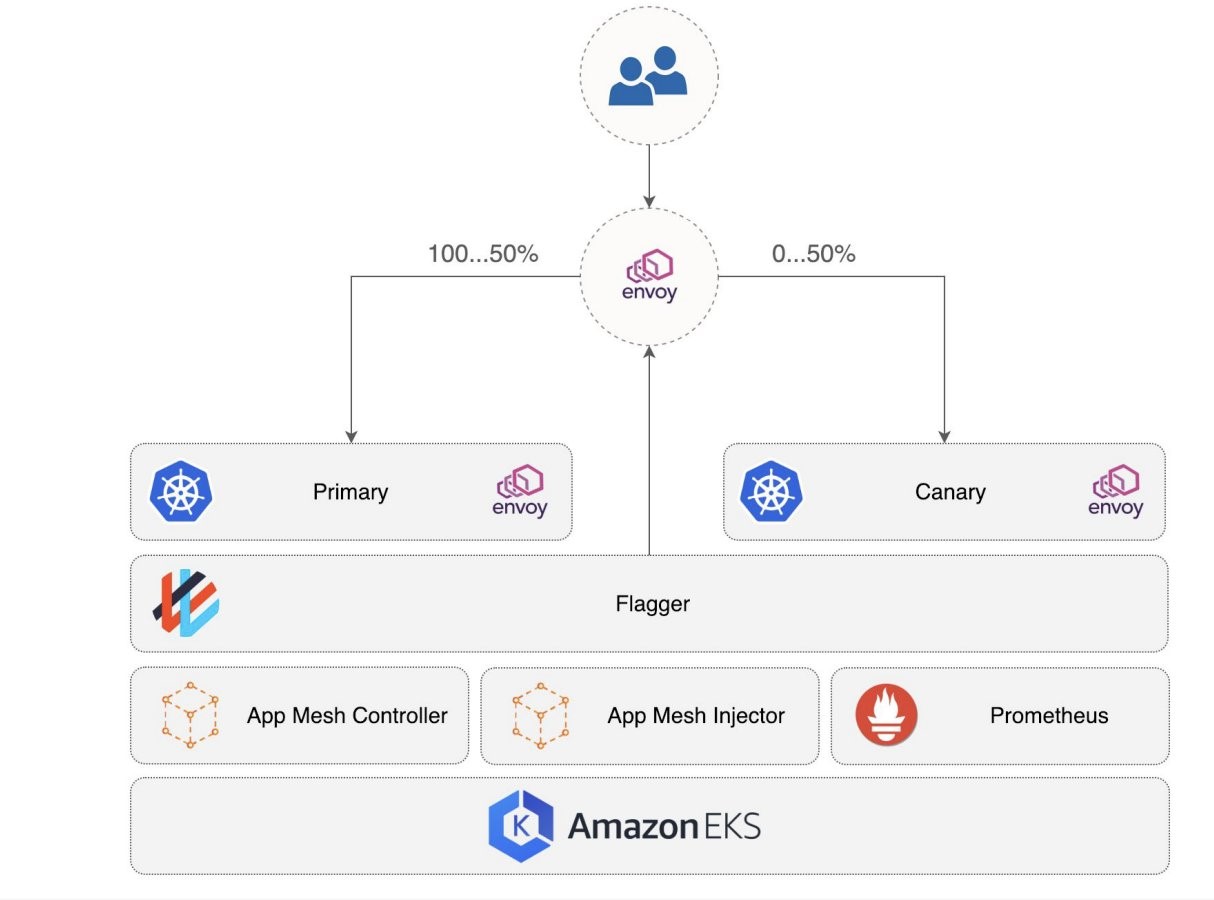Containers
Category: Learning Levels
Onfido’s Journey to a Multi-Cluster Amazon EKS Architecture
This blog was coauthored by Eugene Malihins, Senior DevOps Engineer at Onfido, and Olly Pomeroy, Containers Specialist SA at Amazon Web Services Who is Onfido? Onfido is setting the new standard for digital access. The company digitally proves a user’s real identity using artificial intelligence (AI) by verifying a photo ID and comparing it to […]
Getting started with Consul service mesh on Amazon ECS
We recently announced the general availability of Amazon Elastic Container Service (Amazon ECS) service extension for Consul service mesh in AWS Cloud Development Kit (AWS CDK). This is a new integration that makes it easier for customers to use Consul as a service mesh on Amazon ECS. In this blog post, we show you how […]
Progressive Delivery using AWS App Mesh and Flagger
NOTICE: October 04, 2024 – This post no longer reflects the best guidance for configuring a service mesh with Amazon EKS and its examples no longer work as shown. Please refer to newer content on Amazon VPC Lattice. ——– In this blog, we will cover how to implement progressive delivery using AWS App Mesh and […]
Chaos Engineering with LitmusChaos on Amazon EKS
Introduction Organizations are embracing microservices-based architectures by refactoring large monolith applications into smaller, independent, and loosely coupled services. These independent services are faster to deploy and scale, enabling organizations to innovate and deliver faster. However, as the application grows, these microservices present their own challenges. For example, as you deploy tens or hundreds or thousands […]
Cost savings by customizing metrics sent by Container Insights in Amazon EKS
AWS Distro for OpenTelemetry (ADOT) is an AWS-provided distribution of the OpenTelemetry project. The ADOT Collector receives and exports data from multiple sources and destinations. Amazon CloudWatch Container Insights now supports ADOT for Amazon Elastic Kubernetes Service (Amazon EKS) and Amazon Elastic Container Service (Amazon ECS). This will enable customers to perform advanced configurations, such as customizing metrics […]
Autonomous ML-based detection and identification of root cause for incidents in microservices running on EKS
This blog was co-written with Gavin Cohen, VP of Product at Zebrium. Overview If you’ve never experienced the frustration of hunting for root cause through huge volumes of logs, then you’re one of the few lucky ones! The process typically starts by searching for errors around the time of the problem and then scanning for […]
Secure end-to-end traffic on Amazon EKS using TLS certificate in ACM, ALB, and Istio
I was helping a customer to migrate a Kubernetes workload from an on-premises data center into Amazon Elastic Kubernetes Service (Amazon EKS). The customer had an existing investment in Istio and wanted to continue using it as their preferred service mesh in the Amazon EKS environment. However, the customer was struggling to implement end-to-end encryption […]
How to use Application Load Balancer and Amazon Cognito to authenticate users for your Kubernetes web apps
This post describes how to use Amazon Cognito to authenticate users for web apps running in an Amazon Elastic Kubernetes Services (Amazon EKS) cluster. Behind any identity management system resides a complex network of systems meant to keep data and services secure. These systems handle functions such as directory services, access management, identity authentication, and […]
Modernize Java and .NET applications remotely using AWS App2Container
Since the launch of AWS App2Container, customers have been asking for the ability to remotely manage the migrations of Java and .NET applications running on Windows or Linux hosts. Beginning with the version 1.2 of App2Container, users can accomplish containerization of their workloads without installing A2C software on the application servers. The remote execution feature […]
Traffic Encryption in AWS App Mesh across accounts using certificates from AWS Certificate Manager Private CA and AWS Resource Manager
NOTICE: October 04, 2024 – This post no longer reflects the best guidance for configuring a service mesh with Amazon ECS and Amazon EKS, and its examples no longer work as shown. For workloads running on Amazon ECS, please refer to newer content on Amazon ECS Service Connect, and for workloads running on Amazon EKS, […]







